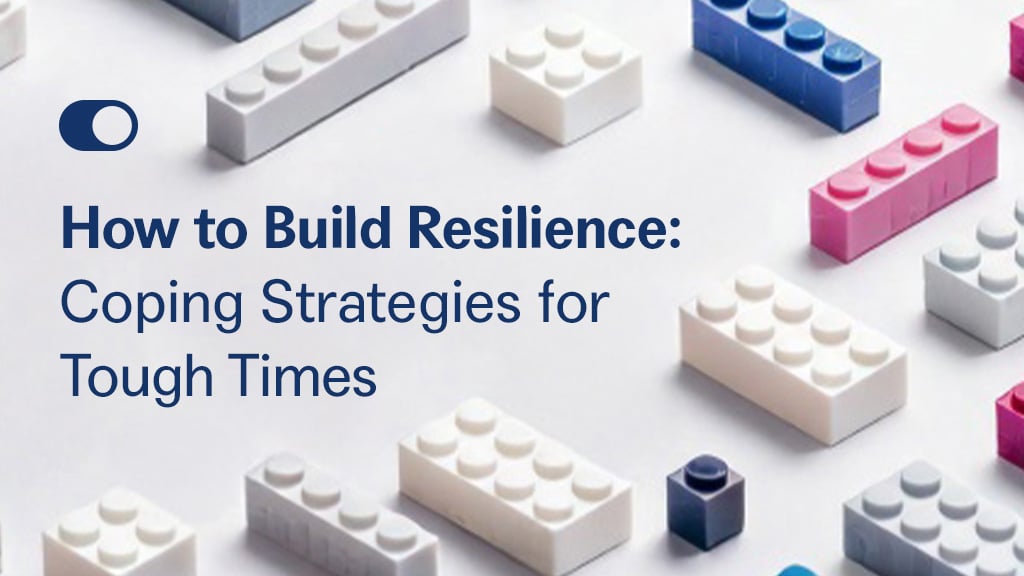
How to Build Resilience: Coping Strategies for Tough Times
Let’s face it, we all go through difficult times in life. From losing a job to breaking up with a romantic partner to unexpected financial problems, it’s natural to feel anxious, depressed, angry, or even paralyzed. Here’s where resilience comes in—that ability to tap into your inner strength and forge ahead in the face of setbacks. Resilience doesn’t magically make problems go away. Rather, it allows you to better handle stress while keeping your emotional and mental health in check until you get to the other side.
The most important thing to know? Anyone can become more resilient.
Below, we’re sharing ways to build mental strength along with effective, action-oriented coping strategies.
Effective Emotional Resilience Techniques
No matter where you fall on the resilience scale, coping with challenging life events is never easy: emotions are up and down, focusing on work and/or family seems impossible, and completing little everyday tasks feels overwhelming. While these types of reactions are common, they’re unproductive and unhealthy. Luckily, there are emotional resilience techniques you can learn and use to manage upsetting emotions, reduce stress, and build mental strength.
Identify Your Emotions: Resist the urge to shift into denial mode. The first step to better coping skills is identifying your emotions and feelings. Naming those emotions can even decrease their intensity. Early recognition also helps catch problems before they build up.
Radically Accept Your Emotions: You need to feel your feelings and radically accept them before you can figure out the best path forward. Getting to the root cause of your emotions will also help you figure out which coping strategies work best for you.
Share Your Feelings: It may seem scary or embarrassing, but sharing your struggles with a trusted family member or friend can provide great relief. Most people find comfort and insight in another’s perspective. And, often, just hearing yourself tell your story allows you to process things in a new light.
Challenge Your Way of Thinking: When plagued by unhealthy thought patterns, it’s easy for emotions to spiral out of control. But guess what? You have the power to change the way you think. Practice positive self-talk (speaking out loud helps) to counter a negative mindset and build confidence and belief in yourself.
Be Optimistic: A positive attitude, gratitude, staying hopeful, and being open to change are key to adapting to—and tackling—challenges with less worry and stress. Bottom line: Being a glass-half-full person will enhance your mental toughness and capacity to see beyond the “right now” (aka, the proverbial light at the end of the tunnel).
Holistic Well-Being Tips
Along with mental toughness and emotional stability, effective coping strategies require action, self-care, and social support. There are many concrete things you can do to build resilience, an invaluable resource we tend not to think about—until we need it. Be proactive and follow these practical tips to improve your ability to bounce back from adversity.
Align Your Actions with Your Values: It’s always helpful to reflect upon and know our values. Values serve as our compass, helping us move toward what is truly important to us while also anchoring us when things become stormy in our lives. Consider your values and who you want to be in the face of these struggles. Then, make sure your actions are aligned with those values.
Set Goals: Setting clear and reachable goals helps you view the future with meaning. Goals can be super simple—writing daily in a journal, organizing a closet, taking a walk. Having something to work toward provides you with structure and a sense of purpose. And who doesn’t enjoy the feeling of success that comes with achieving a goal?
Connect with Others: Even if you’re more loner than social butterfly, having healthy relationships is important. Spending time with supportive family and friends is a gamechanger—and not just during the tough times. And don’t underestimate the positive impact of social interactions with acquaintances, neighbors, baristas, etc.
Get Active and Creative: A surefire way to help reduce stress, lower anxiety, and feel better about yourself: engage in activities and hobbies that bring you joy, and make a positive impact on your body, mind, and soul. Think sports and exercise, writing and art, music, theater, and reading. Anything that keeps you busy and allows you to express your feelings is a win-win.
Take Care of You: We all know self-care is crucial. But too often, it falls by the wayside. Prioritizing your needs and feelings is a must. Focus on healthy eating, exercising regularly, getting plenty of (good) sleep, and routinely engaging in things that make you happy (get a pedicure, hit the golf course, grab coffee with a friend).
Meditate, Breathe, Pray: Relax! Some of the best stress-management methods are always at your disposal. Meditation, prayer, deep breathing, and guided imagery can help you cope with negative feelings, and reduce anxiety and depression. Even better, these activities can help you feel more energetic, positive, and reflective.
Resilience and Mental Health
Developing the ability to move through, and rebound from, difficult situations is an important life skill. The great news is, anyone can learn how to use the coping strategies we went over to boost their resilience. Just remember to be patient with yourself! Just like building muscle or increasing flexibility, becoming more resilient takes practice, effort, and time.
There may also be situations where you need more guidance to get a better handle on your situation and state of mind. Make an appointment with your Primary Care doctor or Mental Health provider for support and to come up with a personalized gameplan.
About the Reviewers

Michael Boroff, PsyD | Mental Health Program Manager
Michael oversees the organization’s behavioral health services nationwide and works within an integrated, team-based care model to establish trusted relationships with his patients and their extended care teams to achieve optimal outcomes. He has spent his years at Crossover establishing, implementing, and maintaining a behavioral health model of care based on approaches that are progressive, sustainable, and scalable. He oversees the mental health program culture and communication, and has large responsibility for hiring and onboarding new team members, in addition to providing direct clinical services.

James Marinchak, LP PsyD | Virtual Mental Health Lead
James Marinchak loves being asked by another person to join them in a process of healing and change. The idea of someone putting their trust in him to work collaboratively on something important in their life, and putting their collective minds and emotions together to find a meaningful change or area of growth for someone else, is always exciting for him.
He attended Graduate School of Applied and Professional Psychology at Rutgers University. James specializes in using cognitive behavioral therapeutic approaches in the treatment of adult and adolescent anxiety, OCD, and trauma. His interests include exposure-based therapies for trauma and anxiety, as well as mindfulness-based approaches for emotion regulation and distress tolerance.